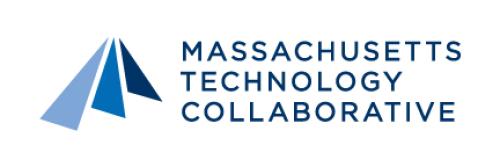WESTBOROUGH, Mass. – The Massachusetts Executive Office of Economic Development (EOED) in partnership with the Massachusetts Technology Collaborative’s (MassTech) Massachusetts Broadband Institute (MBI) has launched a new initiative seeking feedback from residents about high-speed internet availability across the state. The initiative, called “How’s Your Internet?,” is part of a nationwide effort funded by the federal Broadband Equity, Access and Deployment (BEAD) program to expand high-speed internet access through funding, planning, infrastructure deployment and adoption programs across the United States.
"Massachusetts residents need access to reliable, high-speed internet in order to fully participate in our economy,” said Secretary of Economic Development Yvonne Hao. "This initiative will help the state identify gaps in broadband service for residents and businesses and ensure we are putting crucial federal and state resources to work in the places that need it the most."
“Obtaining the most accurate broadband coverage data continues to drive our efforts to bridge the digital divide and ensure that everyone has access to affordable, high-speed internet across the state,” said Michael Baldino, director, MBI. “That’s why we are encouraging residents, businesses, and local and tribal governments to participate in the BEAD Challenge process, conduct speed tests, and submit information about their service. Once we gather this information, we will be one step closer to deploying the funds needed to bring internet for all to Massachusetts.”
Through the “How’s Your Internet?” portal, the state will collect user data to identify homes and businesses that lack access to broadband or do not receive broadband-level internet speeds from their existing service provider. The portal will allow users to type in their home or business address and perform tests that check their internet speeds. If users find their internet speeds are slow or inadequate, they will be provided information about where and how to report their internet speed challenges to organizations that can investigate issues further such as local and tribal governments, nonprofit organizations, and internet service providers.
The data collected through the initiative will help verify the accuracy of the Federal Communications Commission’s National Broadband Map, which shows that 99.3 percent of locations in Massachusetts have broadband internet, identify where gaps and inadequacies in broadband service exist across the state, and determine which locations are in need of investment from the state’s existing broadband programs. The initiative will run from June 20 to July 20, and residents can participate by visiting the portal at HowsYourInternet.org.
MBI will be holding webinars and office hours to provide members of the public with information about how to participate in the initiative and submit their internet speed challenges. Technical support is available from MBI at mapfeedback@masstech.org and MBI’s partner on this initiative Connected Nation at mabeadsupport@connectednation.org.
In total, Massachusetts is set to receive over $400 million in federal funding to close the digital divide. The How’s Your Internet process is a required step related to the state’s receipt of $147 million in BEAD funding administered by the National Telecommunications and Information Administration (NTIA). In addition, the state is in the process of deploying $75 million in American Rescue Plan funding and $175 million from the Capital Projects Fund to close existing broadband gaps. In March, the NTIA announced that Massachusetts will receive $14 million in funding to address the digital divide through skills training, device access, and internet affordability.
About the Massachusetts Broadband Institute at MassTech
A division of the Massachusetts Technology Collaborative, Massachusetts Broadband Institute (MBI) is working to extend high-speed internet access and availability across the state. To achieve this MBI uses state and federal funding to launch infrastructure expansion programs that target areas of the state that lack high-speed internet access as well as digital equity programs that tackle barriers to internet adoption and increase availability, addressing critical issues around affordability, enhanced public Wi-Fi, the need for internet-enabled devices, and digital literacy training. Learn more at https://broadband.masstech.org.
###
